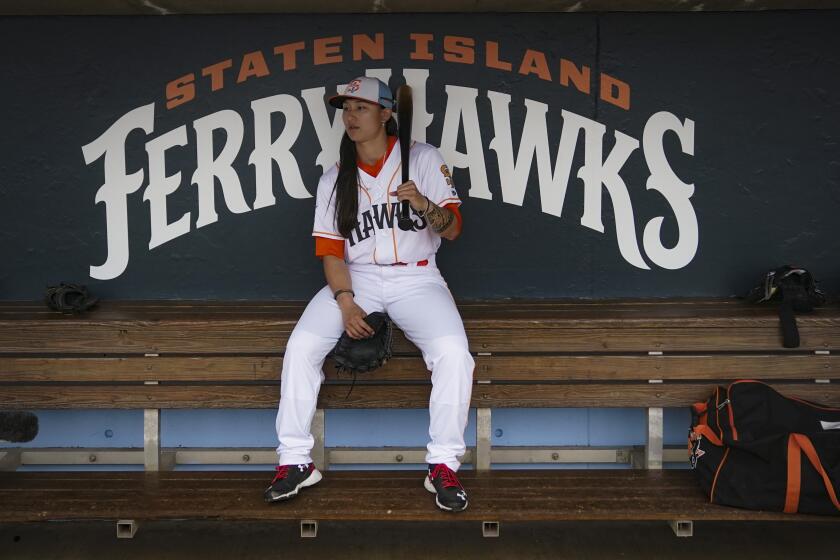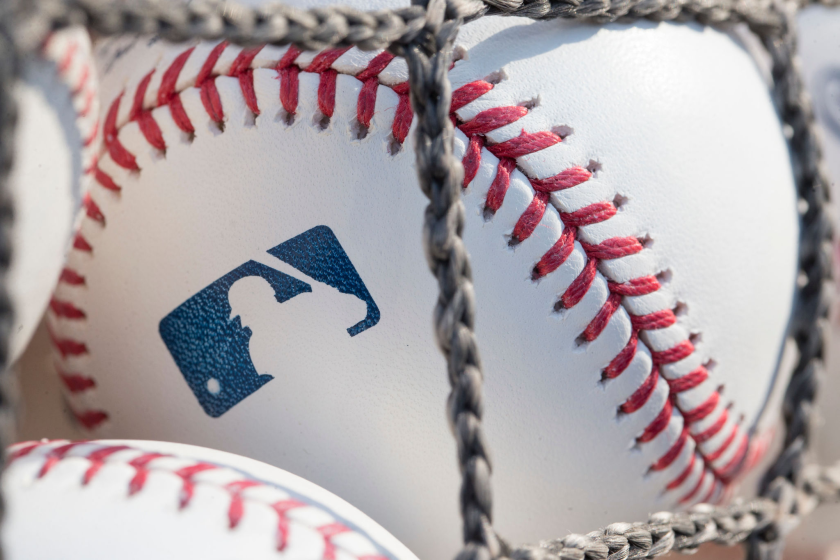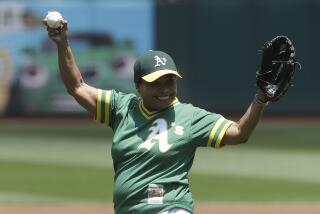Column: How one Chicago Cubs fan (who’s also a senator) is fighting for minor leaguers
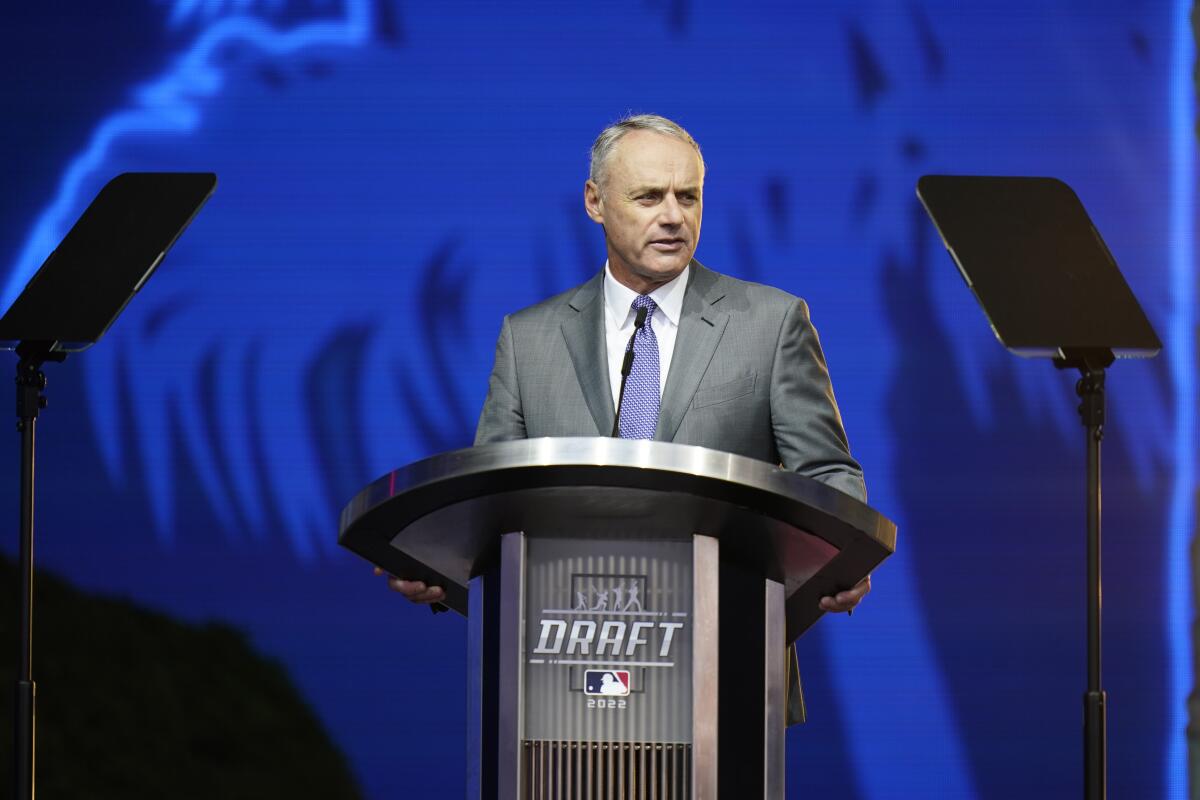
- Share via
As summer turns to fall, the baseball spotlight shines on the brightest stars on the postseason stage: Mookie Betts, Aaron Judge, José Altuve.
In 2022, that autumn spotlight also could shine on Rob Manfred, the commissioner, raising his right hand in Congress and swearing to tell the truth, the whole truth, and nothing but the truth.
“That is definitely our plan,” Senate Judiciary Committee chairman Dick Durbin (D-Ill.) told the Los Angeles Times on Wednesday.
The threat to strip baseball of its antitrust exemption is a time-honored Washington ritual. After 100 years, the exemption stands.
The congressional hearing also is a time-honored Washington ritual. Baseball never got serious about testing for steroids until Congress held nationally televised hearings on the issue, and Durbin says he believes the same might be true for baseball’s treatment of minor leaguers. He said a hearing could take place “in September or October.”
As the committee considers legislation to kill the antitrust exemption, it has focused on the impact on the minor leagues.
“Of course, I’d like to see a new body of law,” Durbin said, “but I’m a realist. What I’d like to see, other than that, is concessions made by Major League Baseball.”
More women are playing baseball at higher levels than ever before, but they still face challenges earning Major League Baseball roster spots.
The committee has asked MLB and the nonprofit Advocates for Minor Leaguers about how the antitrust exemption impacts minor leaguers. The advocates responded earlier this month; the league’s response is due Friday.
In between, Manfred triggered national outrage in his response to the question of whether owners cannot pay minor leaguers a living wage or choose not to do so.
“I reject the premise that they are not paid a living wage,” Manfred said on the day of the All-Star Game.
“I think that was kind of an insensitive statement,” Durbin said. “When a politician makes one, they amend their remarks as quickly as possible.
“It doesn’t reflect the reality of what is happening to the minor leaguers. They are treated very poorly.”
At first glance, of course, Manfred came off looking silly. The starting salary for a triple-A player — the very top of the minor leagues — is about $14,000. The federal government sets the poverty line for a household of one at $13,590.
But the sound bite that lit up social media did not include the rest of Manfred’s answer, about how minor league pay has gone up, how signing bonuses are independent of salaries, and how housing is now provided to players. He previously told The Times how working conditions have improved, with upgraded facilities and less travel.
Is that enough?
In a handbook for new draftees issued this week, the advocates said they would like to change the compensation system from one in which teams control minor leaguers for seven years and pay according to a scale to one in which players could negotiate the terms of their contracts.
In theory, you could sign with the team that drafts you for three years instead of seven, then sign with whatever team offers you the most money, or the shortest road to the major leagues.
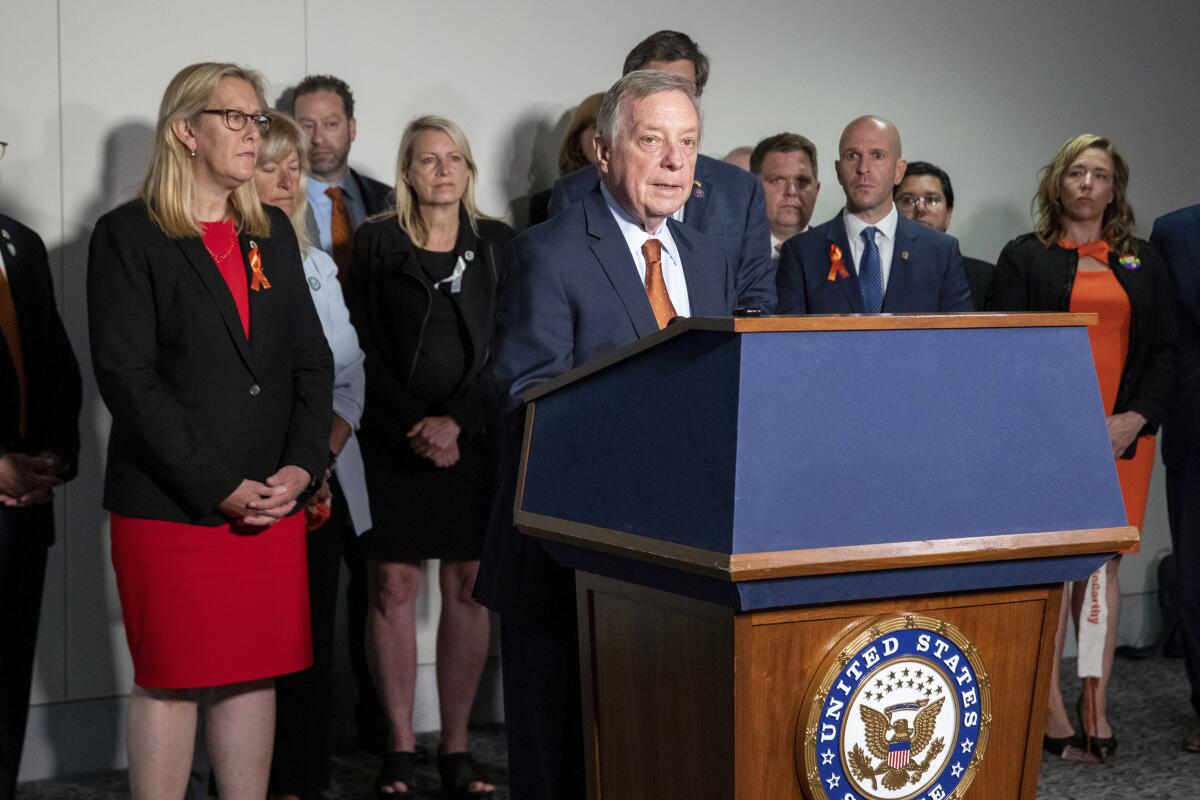
That could lead to an unintended but easily anticipated consequence: the Dodgers buying up all the best prospects. Those would be the kind of details Durbin would like the parties to discuss: how to come up with a newer and fairer minor league system, not whether change is necessary at all.
“I can fight a crusade like anybody,” he said, “but what I am looking for at this stage of my career is actual change. If there’s a way to move toward a better scenario, and they are willing to do it, I want to listen.”
Durbin is fighting for the minor leaguers, but also for the minor leagues.
The committee’s letter to MLB asked the league to commit to “no further contraction of minor league clubs.” As MLB took over operation of the minor leagues last season, it eliminated 43 clubs that had been affiliated with major league teams. There is concern that MLB could increase minor league player pay by decreasing the number of minor leaguers.
“Something has to happen for Major League Baseball to continue to build a fan base,” Durbin said. “I think they have some real challenges. They grudgingly admit it, when they talk about length of a game and changing of rules and such.
“But I think there is another element too: They are pricing themselves out of the market of many American families.
“Minor league teams are catching on. They are affordable and they are nearby and kids can get into the game a lot more easily. It says to me that baseball needs to change.”
The baseball players union rejects MLB’s international draft proposal, keeping the current system of qualifying offers for free agents in place.
Durbin delighted in talking about the Savannah Bananas, whose fan-friendly rules include this one: If a fan in the stands catches a foul ball, the batter is out.
“The minor leagues can teach the majors a few things about baseball,” he said. “I’d like to see them proliferate. I think it would build up the appetite for baseball.
“I want baseball to succeed. I love the sport. But I think some of the owners need to have some fresh thinking.”
His beloved Chicago Cubs, after all, now employ a designated hitter. One can agree on the need for fresh thinking without agreeing on what that thinking should be.
“Lights at Wrigley Field was the first abomination, but the DH?” Durbin said. “My God.”
More to Read
Go beyond the scoreboard
Get the latest on L.A.'s teams in the daily Sports Report newsletter.
You may occasionally receive promotional content from the Los Angeles Times.

